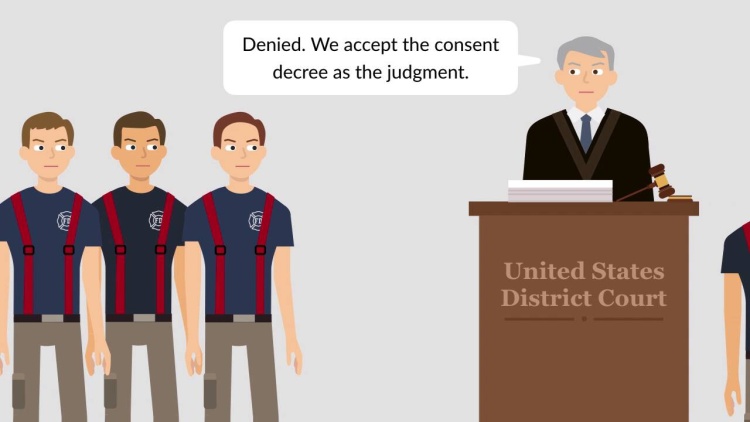Martin v. Wilks
United States Supreme Court
490 U.S. 755 (1989)
- Written by Matt Fyock, JD
Facts
A group of Black firefighters filed a class-action lawsuit against the City of Birmingham and the Jefferson County Personnel Board (collectively, the city) (defendants). The Black firefighters alleged that the city had engaged in racially discriminatory employment practices. To settle the lawsuit, the city entered into a consent decree, which set requirements for hiring and promoting Black firefighters. Some White firefighters tried to intervene in the lawsuit, but their request was untimely. The court entered the consent decree as a judgment in this first lawsuit. Robert Wilks and a group of White firefighters (plaintiffs) filed a second lawsuit against the city, arguing that the consent-decree judgment was racially discriminatory and had caused them to be denied promotions in favor of less qualified Black firefighters. The district court dismissed the second lawsuit. The court found that the White firefighters (1) had not been passed over for less qualified Black firefighters and (2) could not collaterally attack the first lawsuit’s judgment—meaning contest the legality of that judgment—in a new proceeding. If the White firefighters had wanted to contest that judgment, the court reasoned, they should have properly intervened in the first lawsuit. The Eleventh Circuit court of appeals reversed, holding that the first lawsuit’s judgment could not preclude the White firefighters’ claims because the White firefighters had not been parties to that prior action. The United States Supreme Court granted certiorari.
Rule of Law
Issue
Holding and Reasoning (Rehnquist, C.J.)
Dissent (Stevens, J.)
What to do next…
Here's why 907,000 law students have relied on our case briefs:
- Written by law professors and practitioners, not other law students. 47,100 briefs, keyed to 996 casebooks. Top-notch customer support.
- The right amount of information, includes the facts, issues, rule of law, holding and reasoning, and any concurrences and dissents.
- Access in your classes, works on your mobile and tablet. Massive library of related video lessons and high quality multiple-choice questions.
- Easy to use, uniform format for every case brief. Written in plain English, not in legalese. Our briefs summarize and simplify; they don’t just repeat the court’s language.








